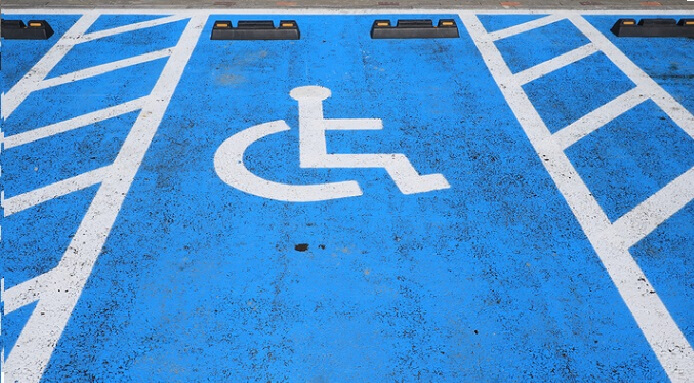As quoted in the Equality Act 2010, if you have a “physical or mental impairment” which has “a substantial and long-term adverse effect” on your ability to carry out day-to-day activities, you are protected by law against unfair treatment.
The important thing is that you know your rights, and know when and how to use them. Regardless of the company or institution you work for, you are protected by the law – so don't be afraid to speak up for your rights.
How to know if you're disabled
Knowing what is classified as a disability can be difficult, especially if the disability is not an immediately visible one - but it is important to remember that the definition is not limited to just physical disorders such as back problems or asthma.
If you are suffering from mental health issues such as depression or even learning difficulties - including dyslexia – you are covered by disability laws. The disorder must have lasted – or at least be expected to last – no less than 12 months also, and having professional medical advice on hand is definitely recommended.
What you are protected from
If you qualify as having a disability of any kind, the Equality Act 2010 protects you from being forced to carry out tasks that you could not possibly master, as well as both victimisation and harassment on the grounds of having that disorder. What adjustments should you be allowed? Your employer is required by law to make what are referred to as ‘reasonable adjustments' to things such as your working hours to prevent you from being at a considerable disadvantage to your peers.
These could include being allowed the time to attend appointments, being given further training, being provided with support workers who can help with things such as reading or physical activities, or improving the access to the premises to ensure that you can enter the site safely.
However, it is also worth pointing out that you are only guarded by these laws if your employer knows that you are disabled. If you are struggling to tell your employer about your disability, be sure to talk to either your trade union rep, or failing that, a local disabled charity of some kind – there are plenty of specialist staff who will be able to help you.
Getting hired
The government provides help and support for those in the process of applying for potential employment through the Access To Work (ATW) scheme. This helps to cover some of the additional costs related to hiring someone with a disability, and includes support in many areas, such as through supplying communicators for those with speech or hearing impairments and covering any extra travel issues.
What to do when newly disabled In the event of you becoming disabled whilst already in work, your employer is obliged to grant you disability leave, during which time you can adjust to your new situation and reflect on whether or not you wish to return to work.
If you choose to continue with your current employment, you should be consulted by your employer on how to go about re-adapting to the workplace and what adjustments will be put in place to help you.
How to make a claim
If you feel as if you are being victimised or discriminated against in your place of work, and the normal procedures of contacting your employer have failed to create change, as long as it is within three months of the initial incident, you can bring forth a disability discrimination claim against them. The process of doing so can be difficult, so make sure you have received the necessary legal advice before doing so.
More details on how to launch a claim can be found through the Trade Union Congress's worksmart scheme.

